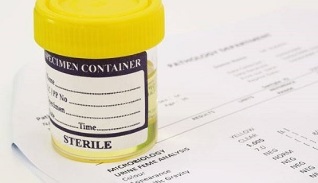If we shift the concept of the Achilles heel to the sexual realm of a strong half-human representation, then the prostate gland will play its role. Acute or chronic forms of inflammation are always a threat to health, and the causes of prostatitis in men are so different that it is not easy to treat the disease. Even with medical advances, urogenital pathology remains one of the most common, moreover, the disease is "younger". To diagnose it properly, you need to know what causes prostatitis.
What is prostatitis
A term used to refer to an exclusive male disease based on two concepts: prostate (Latin for "prostate") and that (from Latin for "inflammatory"). Prostatitis is an andrological pathology in the form of inflammatory processes that occur in the area of the prostate gland. For some reason, the "second heart" in the male body stops functioning, threatening the emergence of unpleasant phenomena such as suppuration, loss of libido, ejaculatory disorders, infertility.
What causes prostatitis in men

Age is not included in the list of factors that cause the emergence of pathology in men. The actual statistics are unknown, and the registered cases, taking into account the correct diagnosis, show that about 35% of young men aged 30 to 40 face such a diagnosis.
Other causes of prostatitis in young men and adults are considered more important and threatening:
- infection (genitourinary, sexually transmitted infections) or tonsillitis;
- inactive lifestyle;
- circulatory disorders (venous blood stasis);
- sexual intercourse is interrupted;
- prolonged abstinence;
- hypothermia;
- hormonal imbalance;
- constipation;
- overeating;
- constant pressure.
In young men
Highly active sexual activity, as well as prolonged abstinence or irregular sexual intercourse, can cause prostatitis in young men. The course of urological pathology in it is characteristic in the acute form, and the most common cause is a sexually transmitted infection. Gonorrhea, trichomoniasis, chlamydia provoke the appearance of acute prostatitis in young men, with possible structural abnormalities in prostate tissue.
Causes of chronic prostatitis in men
If bacteria and other pathogens from infectious inflammation can provoke the appearance of acute form urological pathology, then other factors can cause chronic disease. The danger of this variant of prostatitis lies in the chronic and non-symptomatic disease. It is not possible to identify the characteristic signs immediately, and as the disease progresses periodically, men prefer not to contact a specialist. The inflammatory process continues to develop, and the following factors may contribute to the appearance of chronic prostatitis:
- lifting weights with a full bladder;
- anatomical disorders;
- injury;
- bacterial infections of other organs.
The cause of the acute form

When infection enters the body through the external genitalia, the result of bacterial activity is inflammation of the prostate gland tissue. The acute process is clinically pronounced, therefore, problems rarely arise with the diagnosis of prostatitis in men.
To avoid unpleasant sensations that can affect the potential, it is useful to know the main causes of acute prostatitis in men, among which are the following:
- infectious agents (streptococci, staphylococci, Trichomonas, chlamydia, Escherichia coli);
- sexual intercourse;
- using a urethral catheter;
- instrumental intervention during urethral examination;
- hypothermia;
- congestion, circulatory disorders.
Infectious inflammation
Naturally, the causes of prostatitis in men are different, and the most common is pathogenic action. One type of bacteria can provoke the development of pathology after sexual intercourse, while another may contribute to the emergence of urethritis, pielonefritis, cystitis. Infectious agents enter the prostate from the urethra or rectum. Timely examination can reveal the presence of Klebsiella, enterococci, Trichomonas and other types of bacteria that cause prostatitis.
Congestion in the prostate
This type of prostatitis is more common in mature men, while younger men rarely get sick. It is difficult to recognize the pathology, until eventually it becomes chronic. The situation is exacerbated by the fact that the symptoms of prostatitis form in men may not be completely present, and only the burning sensation in the perineum, a slight pain radiating to the inside of the thigh after a long walk can indicate the presence of non-infectious urological pathology. What factors cause venous blood stasis in the small pelvis?

The main causes of prostatitis in men are:
- work is inactive;
- minimum sexual activity or termination;
- hypothermia of the pelvic organs, whole body;
- hormonal disorders;
- inflammatory processes in the genitourinary system, pelvic organs, rectum;
- varicose veins and other diseases associated with impaired venous blood outflow;
- constipation.
Congenital anomalies may be the cause of venous blood stasis and secretions that cause prostatitis in men. Violations of glandular structure can reduce libido or cause inhibition of sexual activity. The special hormones responsible for erections are not produced in sufficient amounts, which complicates ejaculation. Special secretions accumulate in the glandular ducts, and because ejaculation in men is disturbed and emptying of the ducts does not occur, the stagnant phenomenon will continue.
Reason obtained
Urological disease itself is not contagious. However, medical practice proves that there is a risk: during sexual intercourse, infectious agents can enter the tissues, and then bacteria will enter the prostate gland, causing inflammation.
The following factors make up the group of causes of acquired prostatitis:
- Perineal trauma, which may be followed by the development of chronic inflammatory processes, damage to the prostate canal, or erectile dysfunction.
- Narrow urinary tract, which causes disruption of urine outflow and increased pressure on the urethra.
- The inflammatory process of the genitourinary system (urethritis), when the infection enters the prostate tissue.
- Prostate stones.
- Negative effects of professional activity.
Diagnostic prostatitis
Only based on the results of a comprehensive examination, a urologist can make an accurate diagnosis for the patient. To determine the nature and form of the disease, the doctor will make a history, perform a general examination and urology. To understand the clinical picture and what can cause unpleasant symptoms, a specialist will perform an examination of the prostate rectum, a painful, but very necessary procedure.

With regular visits to a urologist, some diagnostic procedures can be avoided.
The main study complex, which makes it possible to diagnose prostatitis in men, involves the following activities:
- general urine analysis;
- prostate secretion analysis;
- ejaculation examination;
- urethra broom;
- Ultrasound of the prostate gland;
- computed tomography of the pelvic organs;
- biopsy.
Prostatitis Treatment
A doctor may recommend how to treat urological diseases only after performing diagnostic measures. In order not to cause serious complications or not to delay the treatment of prostatitis, it makes sense for the patient to use the tactics chosen by the specialist, in addition, it is important to follow his recommendations. The method of therapy for prostatitis in men will depend on the nature of the inflammatory process: infectious or non-infectious.
The general treatment scheme for this disease is as follows:
- Antibacterial therapy.Taking fluoroquinolone group antibiotics with their unique properties is at the top of the list of drugs that can complicate and prevent the development of prostatitis in men. Sometimes macrolide group drugs can be prescribed, and anti-inflammatory (non-steroidal) drugs help relieve pain.
- Physiotherapy.Each method aims to improve blood circulation, for this, procedures such as magnetic and laser therapy, electrophoresis, bath therapy are used.
- Sort.This is the most effective post-drug treatment to help manage inflammation. When a specialist touches this area, pain is unavoidable, but massage helps speed recovery, removes pus, and enhances the effects of antibiotics.
- Immunomodulator therapy.Measures and funds aimed at improving the state of the immune system are needed for full recovery. Vitamins, reinforcing drugs help restore immunity, maintain and improve well-being, so that strength seems to be able to fight unpleasant diseases and causes of prostatitis.
- Folk medicine, prevention.This indicator is used in addition to the level at which it is possible to overcome the main symptoms of prostatitis in men. Herbal teas, candles and other recipes based on natural gifts should be used after consultation with a specialist. It is also useful for patients to reconsider diet and diet, increase the proportion of natural products, stop drinking alcohol, play sports regularly, and avoid excessive miscarriage.
























